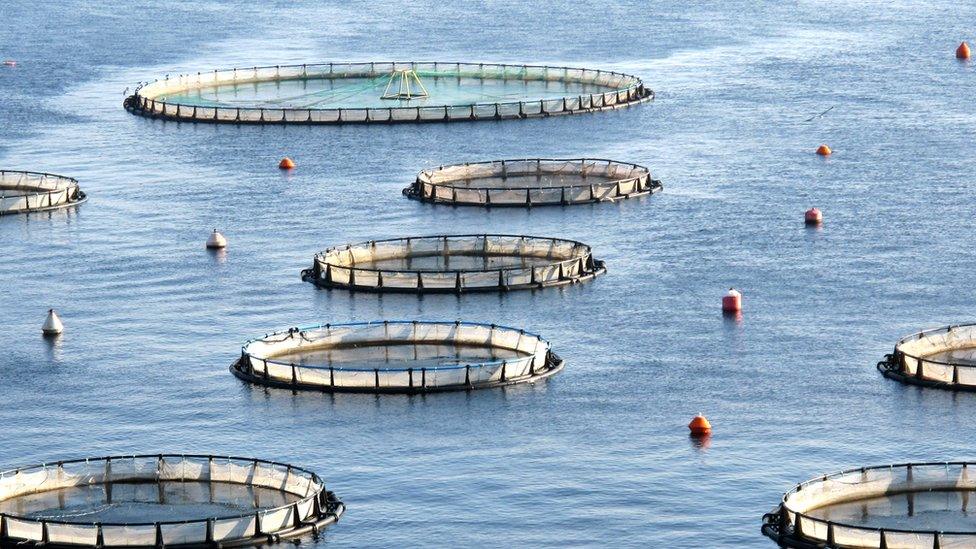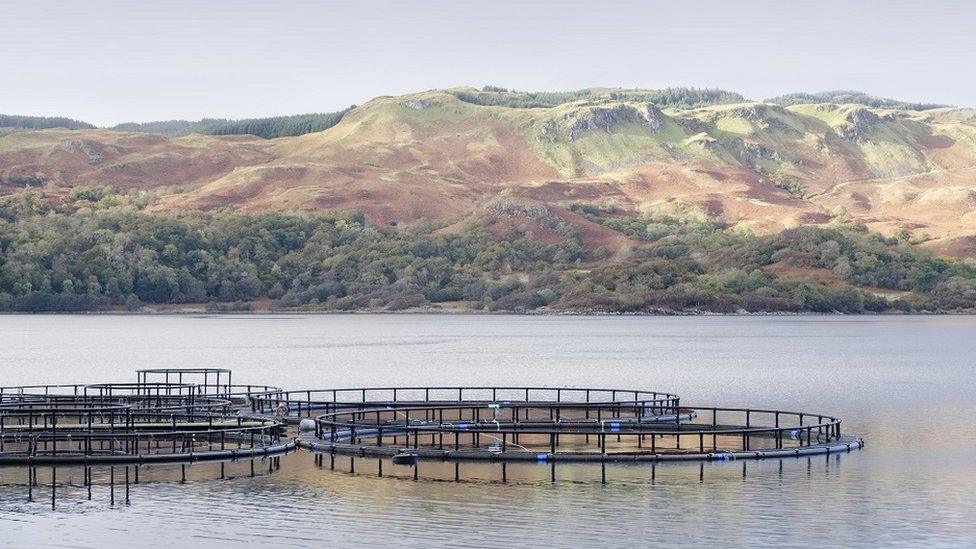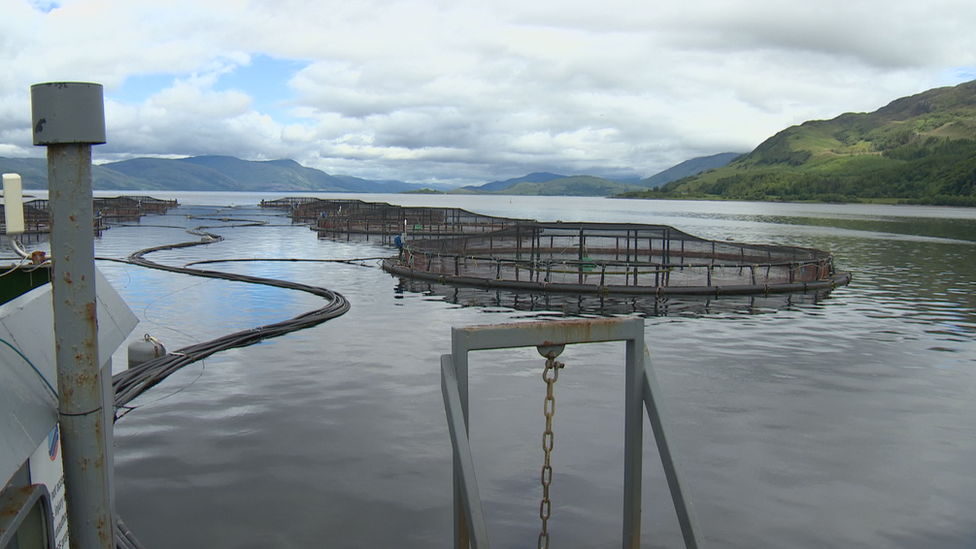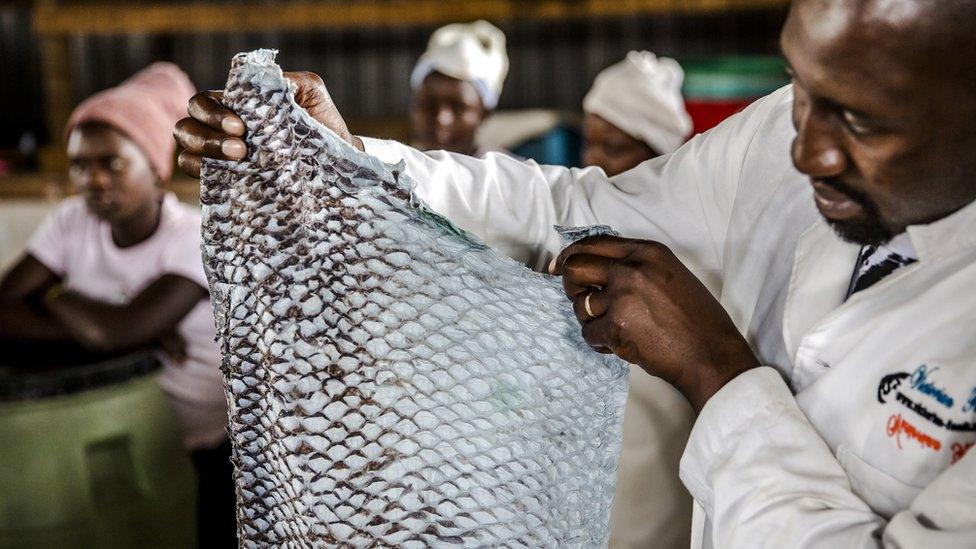Farmed salmon 'not as attractive' to mates as wild fish
- Published

Farmed salmon have smaller jaw hooks - a sexual trait likened to the antlers of a stag, the findings show
Farmed salmon are not as sexually attractive to potential mates as their wild cousins, Bangor University research has shown.
They have smaller jaw hooks, a sexual trait likened to the antlers of a stag.
Despite only being bred in captivity since the 1970s, some 12 generations, the researchers said they were already evolving away from wild salmon.
It comes as part of wider research into the differences between wild, farmed and hybrid salmon.
William Perry, a 24-year-old PhD student and the paper's lead author, said farmed Atlantic salmon sometimes escaped from nets and could interbreed with wild salmon, creating hybrids.

William Perry says the long-term health of the salmon population could be affected
But because farmed fish do not have to compete for mates there is no element of sexual selection - meaning the farmed and hybrid fish do not adapt to breeding in the wild.
Future survival
"So, when you do see high levels of farmed escapees, and inevitable interbreeding within a wild salmon population, this could reduce the long-term health of that population," he said.
"Identifying that this secondary sexual trait is less pronounced in farmed salmon is another sign that as a diverging species, farmed fish are less well adapted, and are less able to compete than wild salmon, a pattern that may be repeating in many other aquaculture species"
Mr Perry's PhD supervisor, Prof Gary Carvalho, said: "Our findings demonstrate that when animals are kept in unnatural conditions, such as in a fish farm, rapid evolutionary change can take place, that can affect future reproduction and survival, after just 12 generations."
The findings have been published in the peer-reviewed science journal Royal Society Open Science.
- Published29 April 2019

- Published7 November 2018

- Published2 May 2019
